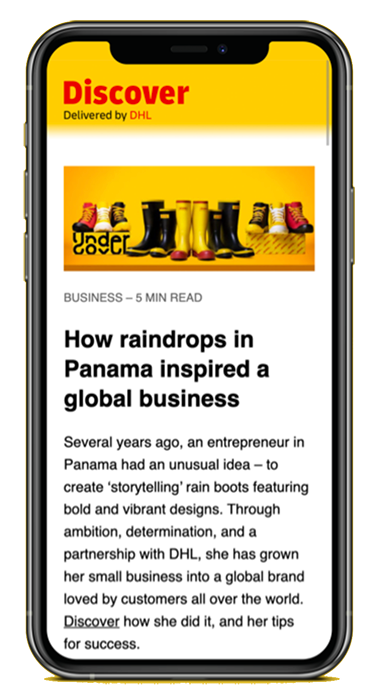Grow your business with the Discover newsletter
Logistics advice & insights straight to your inbox
Subscribe now
The impact of COVID-19 on businesses and the global economy is immeasurable. There has been a surge in e-commerce enterprises with businesses forced to adapt to online retail mediums. This was complemented by dramatic supply chain disruptions which still affect businesses in a post-pandemic economy. One thing is certain amongst all this; the pandemic changed the way people live, work and shop— and businesses need to adapt or be left behind.
In this post-pandemic era, consumers are moving away from brick-and-mortar shops in favour of online mediums like Instagram and company websites. Because of this, businesses that do not invest in high-quality website design and advertising are being out-competed in the modern market. To remain relevant, retail providers must keep up to date with technological innovations, prioritise health and hygiene, and consider implementing a sophisticated e-commerce-based sales model.
Despite the negative COVID-19 impact on the in-person Hong Kong economy, there were many business opportunities for Hong Kong enterprises. Throughout the pandemic, technological innovations accelerated rapidly; digital solutions like automation and artificial intelligence improved many areas of B2B and B2C relations. Warehousing, shipping, website design, customer interaction, data analytics and more were dramatically enhanced by the rapid innovations of the past few years. The pandemic forced these innovations to speed up—without them, many businesses would have gone under, unable to cope with increased demands and supply chain disruptions.
In the workforce, this digital evolution made work from home more accessible. Highly digitised workplaces ensured employees could maintain social distancing without compromising productivity. Post-pandemic, workers remain attracted to a split home/office work week which offers flexibility and a better work/life balance. As a business trend, hybrid working arrangements could be here to stay.


Hygiene has become a huge priority for customers and employees since the pandemic. In a survey of residents in the UK, nearly two thirds of consumers state that hospitality standards are important to them post COVID-19, as reported by Food Alert.
As health concerns subside, sustainable purchasing habits are predicted to increase. Consumers are becoming more eco-conscious in their purchasing decisions. A Deloitte survey revealed that 40% of consumers chose brands that embody environmentally sustainable values. The survey also revealed that 34% of consumers are willing to stop puchasing from brands they believe have questionable ethical or environmental practices. conduct extensive research to ensure the brands they are purchasing from are ethical and sustainable. The Government of Hong Kong is responding by rolling out ‘Hong Kong 2050 is Now’– a collaborative initiative to reach net zero emissions. This eco-conscious economy outlook means retail providers must look to green logistics solutions and other eco business trends to establish and ensure brand trust in the next generation of consumers.
The post COVID-19 economy is all about e-commerce. While many physical retailers went bankrupt, web-based businesses experienced high sales and increased customer engagement. According to a Shopify report, 20.8% of sales are expected to be made online in 2023, compared to 17.8% in 2020. With many retailers shut in 2020, these statistics are evidence of the impact of COVID-19 on the economy. When it comes to e-commerce in Hong Kong, the pandemic accelerated online purchasing. Several brick and mortar retailers established online models to connect with customers and drive sales, due to decline in customer footfall and revenue. These online models are here to stay in a post-pandemic economy.
These new trends demand innovative solutions to help businesses remain competitive through post-pandemic recovery. DHL Express has used digitalisation to transform how business is conducted. Smart logistics and other digital solutions mean DHL Express has been able to optimise international logistics for our partners. DHL Express also uses On-Demand Delivery (ODD) service and chatbots to ensure our clients experience this service at a premium level. For businesses geared towards eco solutions, DHL Express offers green logistics solutions that prioritise limited carbon emissions and sustainable ‘last mile’ delivery practices.
If you want your business to remain competitive and modern, consider partnering with DHL Express. With a team of over 111,000 certified specialists operating in over 220 countries worldwide, we are the partner of choice for businesses of all sizes. Sign up for a DHL Express account today and join our global client base of successful businesses.